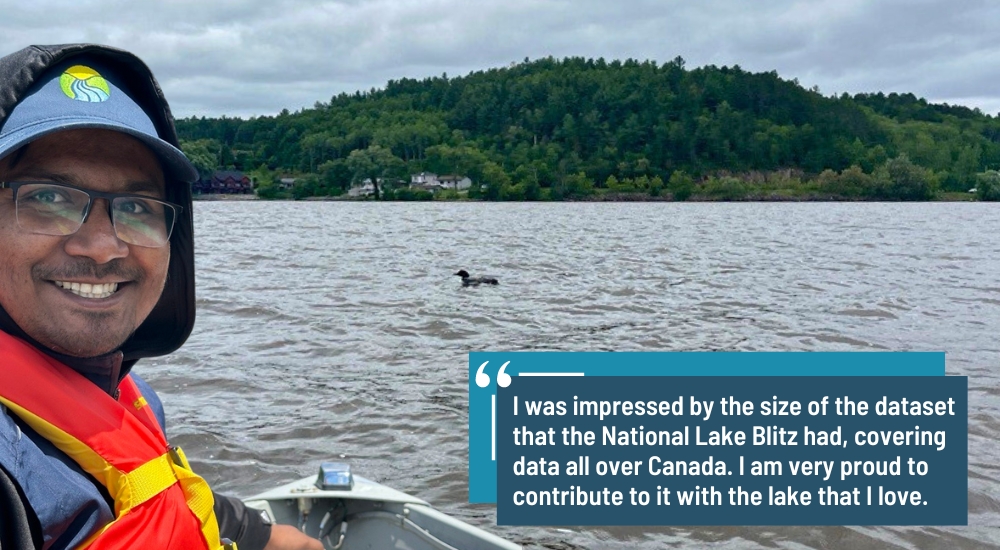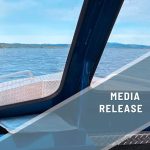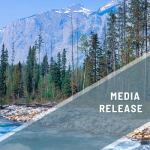🌎 World Water Monitoring Day Spotlight: Latest Updates from Our Monitoring Programs
Banner photo shows water monitoring in the Columbia Basin. LLC Photo
At Living Lakes Canada, we believe that protecting precious freshwater sources starts with community engagement. For this World Water Monitoring Day (September 18), we’re highlighting the incredible efforts of volunteers and local groups who are helping to safeguard the health of our rivers, lakes, aquifers, wetlands and streams through hands-on monitoring. Together, we can gather valuable data, increase awareness, and take action to ensure clean, sustainable water for generations to come. Read on for updates from our water monitoring programs and how you can support this progressive work!

Wildfire Suppression in Rural BC fuelled by proactive Water Mapping
On July 18, the Argenta Creek wildfire was discovered perilously close to the small West Kootenay community of Argenta. One month prior, Living Lakes Canada, in collaboration with the Argenta Safety and Preparedness Society, published “Water Resources for Wildfire Suppression.” This resource provides comprehensive digital maps that identify all available water sources in the nearby communities, enabling local and provincial wildfire crews to quickly orient themselves and gain situational awareness at a critical time.
This project serves as a prime example of an on-the-ground watershed security project, where community-based water monitoring and local knowledge are at the heart of the initiative. Read the full Watershed Bulletin to learn more about this resource and its successful application during an out-of-control wildfire that triggered evacuation orders for almost 150 properties.

Fraser Lake study reveals ‘significant’ loss of natural shoreline
Known for its abundant fishing and recreational opportunities, Fraser Lake, located in central British Columbia, is home to incredible biodiversity. However, concerns about shoreline development impacting critical fish and wildlife habitat prompted a re-survey of the lake’s foreshore in 2023. Living Lakes Canada conducted the survey using a federally-developed monitoring protocol called Foreshore Integrated Management Planning, or FIMP, to assess habitat loss, development pressures, climate change impacts, and other shoreline alterations.
The re-survey revealed an annual shoreline loss of 150 metres on roughly 70 kilometres of shoreline, one of the larger rates of loss the program has seen in the last five years. The survey’s findings and the resulting recommendations to protect Fraser Lake’s sensitive habitats are now available.

Canada’s Lake Biodiversity shines in 2024 Photo Challenge winning images
Our annual Lake Biodiversity Photo Challenge has created a rich tapestry of photographs across Canada, showcasing each lake’s unique features and, in some cases, the evolving impacts they face.
Nearly 450 photos were submitted and 1,228 public votes cast in this year’s competition, showcasing the passion of photo-enthusiasts from coast to coast. Public Favourite winners and Judges’ Favourite winners were selected in each of the four categories: Lake Landscapes, Lake Biodiversity, Lake Impacts and Youth category, for a total of eight winning shots from across BC, Alberta, Ontario and Quebec.

Finding Freshwater in New Episode of The Headwaters Podcast
In the newly released Season 3 of The Headwaters podcast presented by KMC Productions and Columbia Basin Trust, Episode #22: Finding Freshwater delves into the people working to understand the state of freshwater in the Canadian Columbia Basin.
This new episode features insights from members of our team as they explain the water and climate monitoring that Living Lakes Canada is conducting across the Basin and the impacts of climate change on precious freshwater sources. Listen to this episode on Spotify, Apple Music or on YouTube below.

National Lake Blitz volunteer monitors important Quebec lake
Lac Témiscamingue (Temiskaming Lake), a 110-kilometre lake straddling the Ontario-Quebec border, holds a deep historical and cultural legacy within the Ottawa River drainage basin. Since 2022, Akib Hasan from Quebec has been monitoring this lake as part of the National Lake Blitz program.
Growing up by a river in a small Bangladesh town, his connection to nature motivated Akib to get involved in the sciences, study aquatic biodiversity in northern Quebec lakes, and eventually, join the Lake Blitz. Discover more about Lac Témiscamingue and Akib’s work and volunteer efforts to help protect this important lake in our latest Volunteer Spotlight.

Our Current Reads
Record Columbia River sockeye run gets a well-timed break from heat – Seattle Times
Efforts to modernize the Columbia River Treaty provide an opportunity to right the wrongs of the past – The Conversation
New Online Map Tracks Costs of Climate-Related Disasters Across Canada – The Energy Mix
U.S. lakes in communities of color are monitored less for water quality – PhysOrg

Make a Donation for World Water Monitoring Day
Every year, Living Lakes Canada trains hundreds of people in Indigenous and non-Indigenous communities across Canada in essential water monitoring skills including eDNA, groundwater, lake and water quality monitoring. By empowering communities to monitor their local watersheds, we equip them with the tools and knowledge to understand and address their freshwater challenges. Together, we’re building a future where freshwater is protected for generations to come.
Will you help empower more communities to monitor and protect watersheds in Canada? Donate for World Water Monitoring Day!
Each multi-day water monitoring workshop costs approximately $15,000 – 20,000. Here’s how your donation will make a difference:
- Provide water monitoring equipment and supplies for participants to use during workshops
- Replace old or damaged equipment
- Support the water monitoring technicians working closely with communities to deliver workshops










